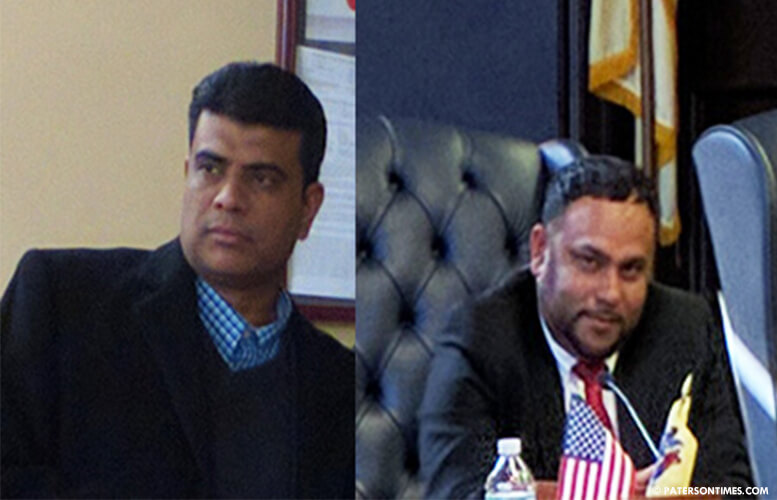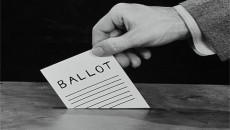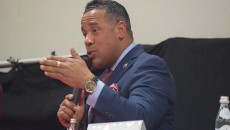After hearing months of testimony from dozens of voters, deputy attorney general Alan Stephens in a brief submitted to the Passaic County Superior Court is suggesting the court reject 22 identified mail-in ballots cast in the 2nd Ward election.
If his suggestion is accepted by Passaic County assignment judge Ernest Caposela that will nullify the results of the May 2016 election. Challenger Shahin Khalique defeated incumbent Mohammed Akhtaruzzaman by 20 votes in that election.
Majority of those 22 voters testified in court to having not cast ballots in the 2nd Ward election in May 2016. For example, Miriam Tatis never applied for a mail-in ballot and she told the court she never voted in the election. Franklin Rodriguez signed a mail-in voter certificate, but testified he never voted via mail or in-person.
Rodriguez testified someone identifying himself as Khalique’s uncle urged him to vote for his nephew. He signed a paper and handed it to the uncle and did not know what occurred thereafter, he testified.
“No doubt, the evidence demonstrated that fraud was afoot in the casting of the vote-by-mail ballots where the witnesses testified that, for the most part, they were not acquainted with nor ever met the purported assistors, Ali and Miah, did not actually cast ballots and in some cases, were told they were registering to vote,” reads Stephens’ brief submitted in early March.
Both men signed as assistor for voters who never met them. “Miah’s and Ali’s failure to complete and sign assistor certificates in the presence of the voter demonstrates a serious break in the chain of custody. It is a fatal defect which warrants the court’s rejecting the particular vote-by-mail ballots challenged by” Akhtaruzzaman, reads the deputy attorney general’s brief.
Ali’s name appears as an assistor on 60 mail-in ballots and Miah’s in 13. Both Miah and Ali worked for Khalique’s campaign. Each signed mail-in ballots claiming to have assisted voters in completing their ballots; however, many of those voters assisted denied having received help from them.
It is illegal for candidates and their campaign workers to assist mail-in voters.
Khalique’s attorney John Carbone in his legal brief filed last week is arguing third-party assistance was necessary to bridge a language barrier that exists in the city’s Bengali community. He is also alleging the New Jersey Secretary of State and the Passaic County Board of Elections “dealt a disservice” to the Bengali-speaking voters by failing to provide voting instructions in their native language.
Carbone is alleging both the state and the county violated state and federal laws.
“We can’t just go and print in 50 different languages,” said John Currie, chairman of the Passaic County Board of Election. He said the board only prints the voting authority slips that is handed to voters prior to casting their ballot in-person at polling sites.
Currie said the county is required to produce voting materials in Spanish, but not other languages.
Leland Moore, a spokesman for the Division of Criminal Justice within the New Jersey Attorney General’s Office, did not respond to a message for comment. The deputy attorney general represents the state in this case.
Khalique’s brief acknowledges immigrants have to have a basic understanding of English to acquire U.S. Citizenship without which voting is not allowed. His filing though appears to paint the Bangladeshi-American community in a poor light, says his opponent.
For example, his filing appears to use a broad-brush to assert there’s some sort of “unfounded suspicion” being placed on Bengali-speaking voters who received third party assistance. However, that appears to be untrue, considering multiple Spanish and Creole speaking voters testified in the trial. Many of them were purportedly assisted by Khalique’s campaign workers.
Khalique is attempting to shift the blame that he and his campaign allegedly engaged in election fraud onto the Bangladeshi-American community, said Akhtaruzzaman.
“I went through three elections. I never had that issue. When you want to do fraud, you can come up with all kinds of excuses,” said Akhtaruzzaman citing the fact that his opponent’s deceased father ended up in the records as having voted in the 2nd Ward election. “Back home our second language is English. I don’t understand why he’s putting the community down.”
Indeed, the land that’s now called Bangladesh was once a colonial possession of the British Empire. English is widely used in government and schools. School students are taught to read and write English. Although some first-generation Bangladeshi-Americans don’t speak fluent English, most Bengali-speaking residents can read and write English, said Akhtaruzzaman and other community leaders.
When told of Akhtaruzzaman’s criticism, Khalique replied via text message, “Once again Mohammed Akhtaruzzaman demonstrates that he does not have a basic understanding of the English Language and has no common sense.” He said the Voting Rights Act requires the state and the county to provide immigrant communities of a “certain size” voting material in their native language – in this case Bengali.
“Akhtaruzzaman needs to stop fear mongering and start acting like an adult and start helping look for solutions to problems that affect our residents’ lives. He can still help as a private citizen,” said Khalique.
Akhtaruzzaman’s attorney Susan Champion in her brief is calling on the court to reject 40 mail-in ballots for irregularities ranging from no-resident voters to election fraud. The former councilman wants the court to either nullify the election and allow him to assume the 2nd Ward council seat or order a special election.
Khalique’s attorney argues the former councilman has failed to establish illegal votes were cast by those voters. For example, in Tatis’ case, Khalique’s attorney argues: “The contestant has failed to meet the burden to have this voter declared illegal and the vote should not be rejected.”
The deputy attorney general’s brief says neither the state nor county election officials have an interest in the ultimate outcome of an election contest. The state’s objective is to ensure a “proper application or interpretation of the election laws,” reads his brief. The three attorneys in the case have submitted almost 200 pages of briefs.
The court has scheduled a hearing for June 9th, 2017 in the case.
The open political and court battle between the two men has tarnished the reputation of the city’s well-regarded Bangladeshi-American community. For example, Bangladeshi-American students dominate academics in Paterson and at the Passaic County Technical Institute. Some in local political circles have joked the city’s brightest community sends its dumbest into politics.
Email: [email protected]



